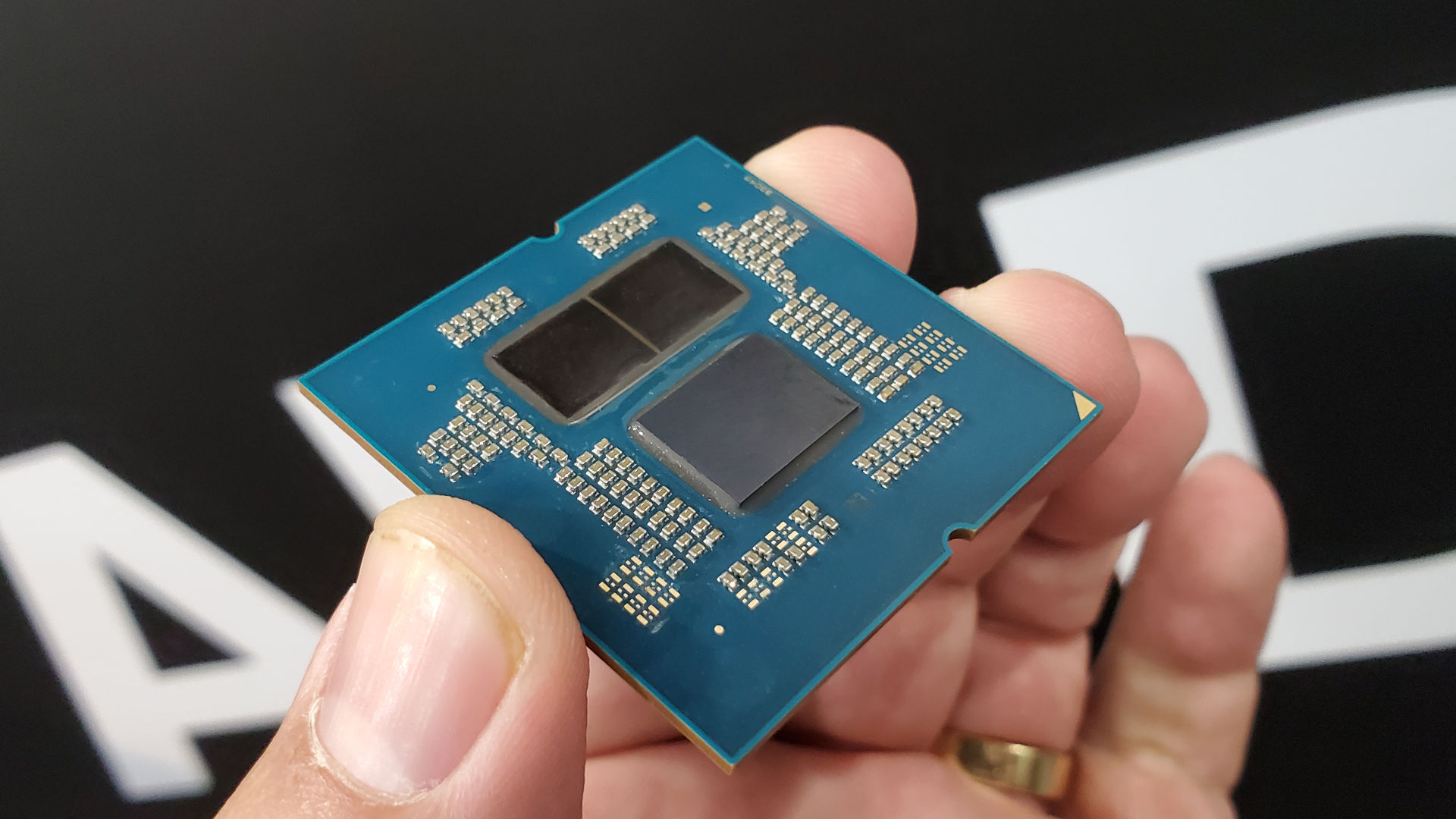Ryzen 9000 X3D chips could be with us by September, just three months after AMD's Zen 5 launch
Only one source claiming this right now but Zen 5 appeared sooner than we expected, too.

Computex 2024 was a pretty decent affair—despite AI products festooning every stand—thanks to AMD and Intel launching some new, tasty-looking CPU architectures. PC gamers, though, were hoping to see AMD announced 3D V-cache models alongside its Ryzen 9000 chips but to no avail. However, one rumour currently doing the rounds is that we won't need to wait very long to see them, with 9000 X3D variants appearing as early as September.
The source of said rumour is Club386, who spoke with an unnamed person at Computex, claiming that AMD plans to launch 3D V-cache equipped versions of its new Ryzen 9000 processors in September. When we spoke to AMD at Computex, it didn't say anything about release dates but it did confirm that it was "working actively on really cool differentiators to make it even better."
Three months would be a bit of a record for AMD and its introduction of X3D variants after a new architecture announcement. For example, the time gap between the Zen 3 and the Ryzen 7 5800X3D announcements was around 18 months, and it was almost six months between the Zen 4 and Ryzen 9 7950X3D launches. So three months is a mere blink of an eye, in comparison.
Not that this would be surprising, if true, as it's not like 3D V-cache is a brand new technology. It's been over two years since AMD first started adding 64MB slices of extra L3 cache to some of its processors, so there's a good chance that the chip giant is just waiting for the usual round of October sales to shift older products before hitting our wallets again with a new batch of X3D CPUs.
As the first models of the Ryzen 9000 series have already been announced, it's not too hard to guess which ones will get a 3D V-cache variant. We'll almost certainly see a 16-core Ryzen 9 9950X3D, 12-core 9900X3D and an 8-core 9800X3D, but what about a mid-range processor?
After all, AMD did say "cool differentiators" when discussing what improvements it's bringing to the cache technology, so we could see a Ryzen 5 9600X3D appearing at some point this year.
However, such a product might take sales away from the standard Ryzen 7 9700X, especially if the 9600X3D's gaming performance is better and the prices are similar. The former might be controlled, though, by AMD using different amounts of 3D V-cache on its new 9000 series.
The biggest gaming news, reviews and hardware deals
Keep up to date with the most important stories and the best deals, as picked by the PC Gamer team.

Best CPU for gaming: The top chips from Intel and AMD.
Best gaming motherboard: The right boards.
Best graphics card: Your perfect pixel-pusher awaits.
Best SSD for gaming: Get into the game ahead of the rest.
The top-end 9950X3D could, for example, have both CCDs under the heatsink topped off with some extra L3 cache, rather than just the one, as with the current 7950X3D. To ensure that the 9600X3D fits its sector better, rather than having 64MB of extra cache, it could just have 32MB.
All this is just guesswork at this stage, as AMD is keeping very tight-lipped about everything and its motherboard partners haven't particularly forthcoming with hints and tips either.
But given that the Ryzen 7 7800X3D is already the best gaming CPU you can buy right now and Zen 5 has a decent performance uplift over Zen 4, I strongly suspect that AMD will be topping the gaming charts again with its Ryzen 9000X3D models unless Intel's Arrow Lake is a substantial improvement over Raptor Lake.

Nick, gaming, and computers all first met in 1981, with the love affair starting on a Sinclair ZX81 in kit form and a book on ZX Basic. He ended up becoming a physics and IT teacher, but by the late 1990s decided it was time to cut his teeth writing for a long defunct UK tech site. He went on to do the same at Madonion, helping to write the help files for 3DMark and PCMark. After a short stint working at Beyond3D.com, Nick joined Futuremark (MadOnion rebranded) full-time, as editor-in-chief for its gaming and hardware section, YouGamers. After the site shutdown, he became an engineering and computing lecturer for many years, but missed the writing bug. Cue four years at TechSpot.com and over 100 long articles on anything and everything. He freely admits to being far too obsessed with GPUs and open world grindy RPGs, but who isn't these days?

